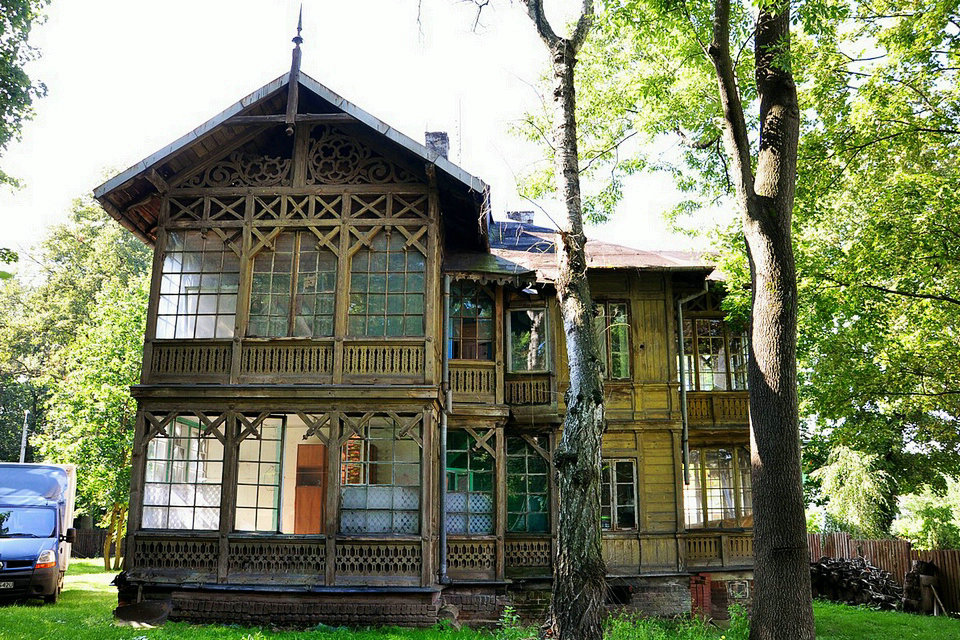Świdermajer


Świdermajer is a distinct Polish architectural style developed in late 19th and early 20th century in Masovia along the railroad linking Warsaw with Otwock. The style was applied almost exclusively to wooden villas of the middle classes. Developed by Michał Elwiro Andriolli, the style combined traditional elements of local wooden architecture with the Swiss style popular after the world fair in Vienna of 1873 (wide roofs), Russian traditional houses of the common people (wooden porches with windows) and some elements of the decorative art from the Podhale region.
Origins
The name Świdermajer was a play on the words “Biedermeier” and “Świder”, the latter being the name of both a river along which a number of villas were built and a village between Warsaw and Otwock considered the ‘Świdermajer capital’. As local neologism, the word was popularized by Konstanty Ildefons Gałczyński in an epigram called “Wycieczka do Świdra”.
Świdermajer, Nadświdrzański style – the name of wooden summer architecture created at the turn of the 19th and 20th century, south-east of Warsaw, along the Droga Nadrazilska (Nadwiślańska Railway) on the so-called Otwock in the following villages: Anin, Międzylesie, Radość, Zbójna Góra, Miedzeszyn, Falenica, Emilianów, Michalin, Józefów, Świder (Letniska Falenickie ) and in the summer resort, and then Otwock .
The creator of this style of building was Michał Elwiro Andriolli , who lived since 1880 in a settlement located on both banks of the Świder River . The settlement in 1883 officially adopted the name Brzegi .
The style has elements of traditional Mazovian construction with a light construction and richly decorated pavilions, inspired by the Warsaw Agri-Industrial Exhibition from 1885. Andriolli brought to Brzegów several houses exhibited at the exhibition. Bolesław Prus wrote about them: “These are the trinkets Warsaw has never seen in this number and variety. Each of them entertains the eye with a beautiful form, stucco, carving, upholstery decorations or a vivid color “.
The main shape of the building influenced by Swiss architecture, which in Europe became very popular after the world exhibition in Vienna in 1873. Andriolli enriched the form with verandas and vestibules taken from the architecture of Alpine huts and Russian dacha. The characteristic features are wooden openwork decorating porches and porches, pointed roof tops.
Name
The name “świdermajer”, as jokingly similar to the name biedermeier, was immortalized by Konstanty Ildefons Gałczyński in the poem “Trip to Świder”:
“It is a villa village, it is called a dangerous drill, a river of the same name shines behind the villas behind;
here at the August night, when I go under the stars, some stars fall, but not at these villas,
they fall without an explosion on my poor head, and villas in a threatening style as they stand, so stand –
day and night; and again, at night, a faint glow illuminates them; what a “Concerto grosso” of Frederick Jerzy Haendel!
These villas, as the village head says, are in the “świdermajer” style.”
– Konstanty Ildefons Gałczyński, “Trip to Świder”
Source From Wikipedia